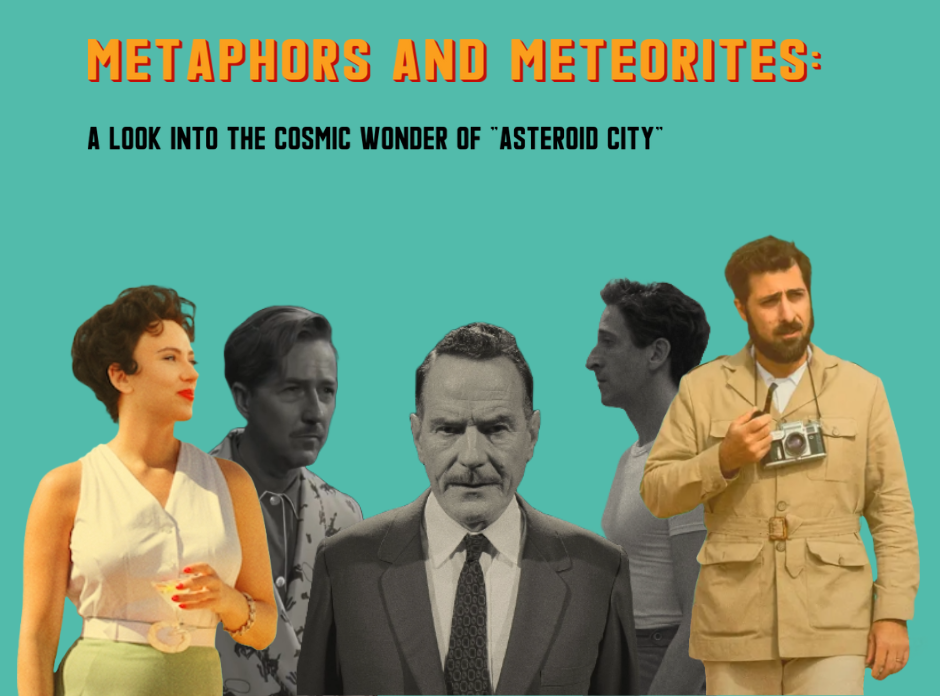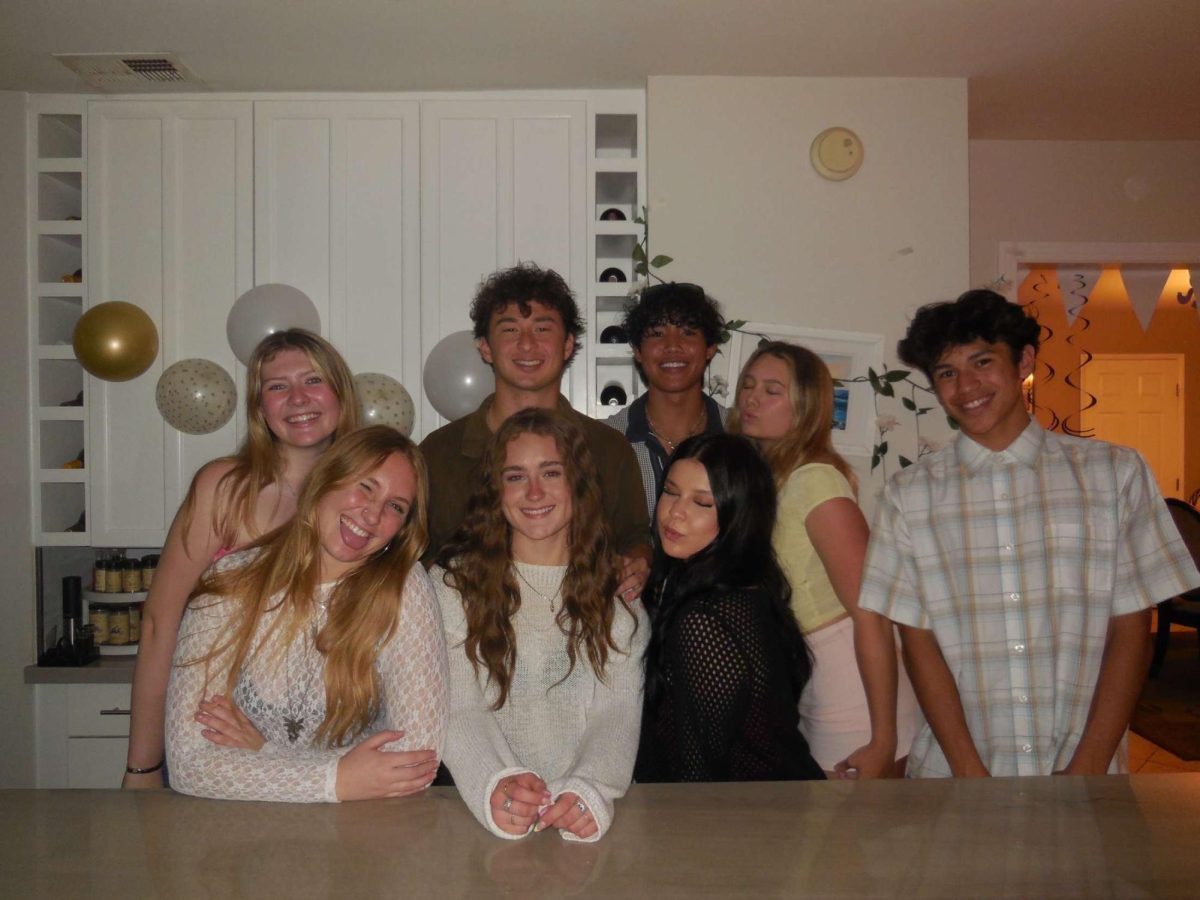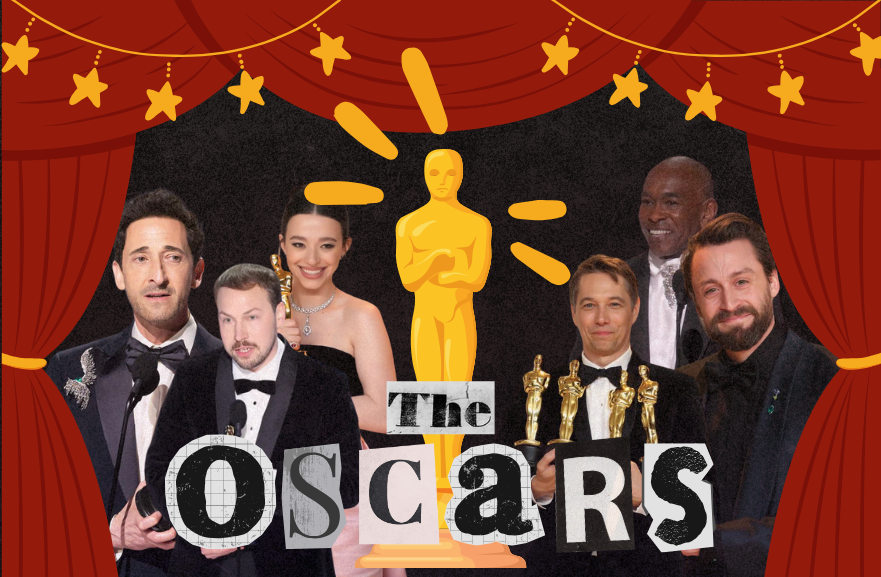To the disappointment of hundreds, if not thousands, of overly pretentious film connoisseurs—including myself—liking Wes Anderson does not make a person interesting. In fact, it cannot be considered in lieu of a personality, as much as people try. I too suffer from the so-called “Anderson-mania,” and only write for an editorial because of his 2021 hit “The French Dispatch.”
Anderson’s rise to popularity in mainstream pop culture is not at all bad; it allows more people to experience his truly unique works of art. However, many of his fans consider themselves better than the rest of us and attempt—in as many crude ways—to prevent others from enjoying his films. They utilize many off-putting tactics including claiming there are difficult themes that cannot be understood, acting as if he is an underground indie filmmaker, and generally spewing out any old ostentatious nonsense to put people off.
I, however, aim to open up the whimsical joys of the Anderson collection, and break down his latest motion picture: “Asteroid City.”
It is imperative to note that this review contains spoilers for the film.
Act I: “Curtain rises on a desert bus stop”
What is “Asteroid City?” Ah, the pressing question eager to escape from everyone’s lips. “Asteroid City” is a play within a play within a televised radio show within a movie. Has that made it any clearer? The truth is, “Asteroid City” is a lot of things, but first and foremost, a story of grief, love, and the creative process. And also aliens, in a way. As the fictional playwright Conrad Earp once said, “it’s about infinity, and I don’t know what else.”
The film opens with the host (Bryan Cranston) bathed in the harsh black-and-white light of a 1950s television studio. He introduces the audience with an almost chilling sentence: “Asteroid City does not exist.” To a viewer, this may seem arbitrary to point out, but really “Asteroid City” does not exist in multiple ways. To help with this, there are parentheticals to clarify the various universes we are about to be introduced to. There is our world (the audience watching the movie), the world of the television show, the world inside the televised play, and the world within the fictional play itself. All of these worlds come together to create multiple stories, all with a shockingly comprehensive theme.
Conrad Earp (Edward Norton) is the fictional playwright who conceived “Asteroid City” (the play). He is shown as a lonely man, tapping away on his typewriter. We are then sped through to meet the actors who play the characters, the most important ones being Jones Hall (Jason Schwartzman), Mercedes Ford (Scarlett Johansson), and the unnamed understudy (Jake Ryan). There is always a certain charm to the names Anderson assigns his characters, but my favorite by far is Mercedes Ford, an obvious riff on the two car companies. There is a fair amount of subtle humor to Anderson’s style, which hasn’t shown itself since “The Grand Budapest Hotel” from 2014. I was pleasantly surprised by the amount of times I audibly laughed during the movie, having gone into it assuming it would be on par with “The French Dispatch.”
After a brief introduction to some of the many characters who make an appearance, we are flung into a glaringly bright title sequence where a model train whizzes by to jaunty country music.
Augie Steenbeck (Jones Hall/Jason Schwartzman) is—like many Anderson characters—a sad, middle-aged, father. Despite the insistent use of the “sad dad” trope, there is a level of depth to Augie that we haven’t seen in any previous Anderson films. He is complicated, but in an entirely different way to Mr. Fox in “Fantastic Mr. Fox.” Whilst Mr. Fox seems ignorant of his flaws, for the most part, Augie is so acutely aware of them, that you can’t help but feel sorry for him. He knows he’s failing. We know he’s failing. And yet, we want him to preserve and become a stronger man and father. Augie is reserved, shy, and just as lost as his own son. His car broke down, and now he and his four children are somewhat stuck in the middle of nowhere. The town of Asteroid City serves as a symbol for both Augie’s depression, and a place of undiscovered wonder.
His son, Woodrow (Understudy/Jake Ryan), is participating in a Young Stargazer’s event being held in Asteroid City, where they barely managed to arrive. Already the painfully stunted but beautifully acted dialogue has presented itself, as Augie calls Stanley Zak (Tom Hanks), his father-in-law to come and pick up his three youngest daughters, who are around the age of seven. Here we learn that Augie’s wife (Margot Robbie) had passed away three weeks earlier and he hasn’t told his children yet. Stanley agrees to drive up and retrieve the girls, admitting that he doesn’t much like Augie.
The dynamic between Stanley and Augie is interesting, but it’s my least favorite character dynamic in the film. It’s well acted, of course, and decently written, just isn’t as poignant in comparison to some of the deeper relationships we see, such as those between Midge Campbell (Mercedes Ford/Scarlett Johansson) and Augie, as well as Jones Hall and the director of “Asteroid City,” Schubert Green (Adrien Brody). Stanley Zak was also my least favorite character. Tom Hanks is always an excellent actor, but Stanley is nothing new, just another messed-up dad lacking in complexities, unlike everyone’s favourite war photographer: Augie.
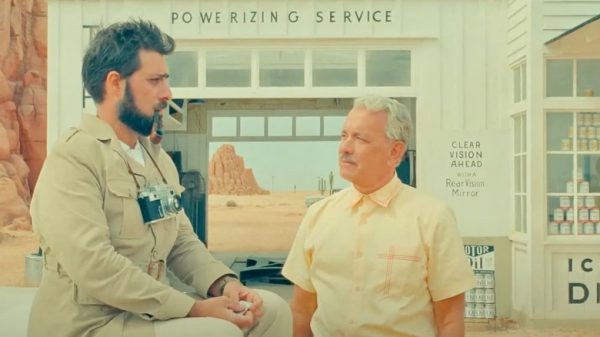
Along with Woodrow, there are other teens participating in the cosmic competition, notably Dinah Campbell (Grace Edwards), the daughter of famous actress Midge Campbell, Ricky (Ethan Josh Lee), a fellow journalist, and Clifford (Aristou Meehan), an insecure daredevil. Out of these three, Clifford is by far the most entertaining, and his tagline of “Do you dare me” makes viewers feel sorry for his uncertainty and sadness whilst also appreciating the silly scrapes he gets himself in.
There is a romance formed between Dinah and Woodrow, and it wasn’t well presented. It fell flat and annoying compared to the rest of the movie. Anderson likes to represent a coming-of-age story by making his young protagonists fall in love, and it’s always my least favorite part of his films. Not to say romance isn’t allowed, but it rarely manages to resonate properly with a younger audience.
Enough is happening already in “Asteroid City” on its own, and it feels redundant to throw a childish romance on top, like a sloppy coat of icing on a perfectly baked cake. All this to say, it felt unnecessary the film would be better off without Dinah and Woodrow necking it by the end.
A much more interesting romance formed is the one between their parents, which, as I write, I realize how strange that sentence—and subplot—is. Anderson is often one to incorporate odd pairings into his films, including the incestuous siblings in “The Royal Tenenbaum” from 2001, and the prisoner and jail warden in “The French Dispatch.”
Midge Campbell solidifies herself as Augie’s opposite fairly early on. They bond over losing loved ones, and the general grief of being a parent and a human. Schwartzman and Johansson are both amazing actors, and “Asteroid City” gives them the perfect opportunity to show off the depth of their skill. I particularly enjoyed their back-and-forth conversations held at the open windows of their motel huts, as they bond and discover something about themselves as well as each other.
We also meet a flock of school children who have come for the festivities, chaperoned by their teacher June (Maya Hawke), and a small rag-tag country band starring the southern-accented and delightfully polite Montanna (Rupert Friend).
General Griff Gibson (Jeffrey Wright), a representative of the United States government, heads the occasion along with the scientist Doctor Hickenlooper (Tilda Swinton), and the motel manager (Steve Carrell). Although a fairly small role, Carrell adds a lot to his part, due to his recognizable and comforting humor. Despite this, Carrell is actually filling in for Bill Murray, a Wes Anderson usual who, due to catching COVID-19, could not make the filming of “Asteroid City” in time. Regardless, Carrell and Hanks both give a sense of familiarity to an unsuspecting audience member, giving even the most anti-Anderson viewer something to enjoy.
All of these unusual characters come together at the climax of the film when an alien (Jeff Goldblum) arrives to retrieve a meteorite from the ceremony, forcing the town—and the people in it—to quarantine with each other, in an allusion to the painfully recent COVID-19 lockdowns.
Act II: “You’re perfect”
While the fictional play plods along at a steady rate, the fictional actors, director, and writer have their own challenges to face, because obviously, the creative process isn’t hard enough on its own.
Jones Hall, the leading man, is a sensitive type, albeit headstrong in his own way. Of course, he shows up at our playwright’s house ready with a tub full of ice cream and the whims of a romantic. He not only manages to charm Conrad Earp with his aforementioned cold treat but also with his incredible skill of quite literally becoming Augie—fake beard and all.
This is such a beautiful moment in the film as it highlights the relationship between writer and actor expertly. They join together to create something wonderful, a collaboration of wit, whimsy, and passion. There is another moment towards the end of the film that similarly explores the collaborative process of creating something as incredible as a play, but we’ll cross that bridge when we get to it.
The “behind the stage” moments of this film are all in black and white, which heavily contrasts them with the brightness of the fictional world of “Asteroid City” (the play). This juxtaposition reminds us that “Asteroid City” is just that—a fictional world—and the monochromatic moments are therefore much more grounded and realistic. The world of “Asteroid City” is detached and colorful like a child’s make-believe game, whereas the dampness of 1950s Broadway is sad and forgotten. Perhaps it is trying to tell us that we will forget to make the present right if we stay shrouded in fantasy for too long. But who am I to say?
We see this theme seep through especially with the director’s—Schubert Green—storyline. Although, it hardly counts as a storyline, as we are never given much information on him at all. Schubert Green is a man after my own heart, having decided to put his heart and soul into the production of the play, it has also consumed him to such an extreme that he lives in the theatre. He is physically unable to remove himself from the daydream of “Asteroid City” (the play) to such an extent that his wife divorces him and he doesn’t go visit his son. Schubert, like Augie, Jones, and everyone else in the whole film, is stuck. He lives, breathes, and consumes his theatrical world, and can’t find a way out. Despite being a relatively minor character, Schubert is absolutely fascinating.
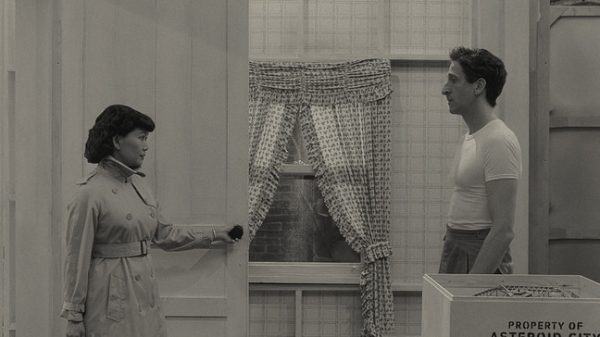
Schubert and Conrad are a captivating pair, and their compatibility as creatives is downright genius. Their ability to weave together their unique ideas and turn them into something whole would make even the finest duos in history shudder. Their relationship is symbiotic, and it truly feels they need each other to survive. Without Conrad’s play, Schubert would have nothing to get lost in, and without Schubert’s directions, Conrad would still be deaf to the real meaning of his play.
A particular scene of the film that defined the theme almost perfectly took place in Saltzburg Keitel’s (Willem Dafoe) acting class. Conrad is faced with a “sleeping scene” he doesn’t know how to write, so Schubert, Keitel, and his students (many of whom appear in the play) lend a hand. It is Jones Hall, an unofficial student in the back of the room, who first yells out the immortal words “You can’t wake up if you don’t fall asleep,” before a chorus of voices joins in. It seems obvious, so obvious, that that’s the problem. It doesn’t make sense that this is a revelation, but it is. Like how it doesn’t make sense that Augie wouldn’t tell his children their mother is dead, or that the alien would return the meteorite, or that Jones Hall really does burn his hand on the Quickie-Griddle, a hot plate used to make a grilled cheese.
This line is inconsistent, like space, or aliens, love, or grief, or life. And it’s wonderful, truly and absolutely wonderful.
Act III: “Maybe it’s written in the stars”
“Asteroid City” is the perfect representation of my love of space. It’s generally factually inaccurate but filled with its own kind of wonder and mystery. “Asteroid City” does not pretend to know about the cosmos, and I love it all the more for that. I don’t have the patience to learn the facts, but I love to imagine what it’s like out there, what it feels like to float around, weightless and directionless.
There’s an odd sensation produced from watching Woodrow, Augie, and Midge stumble around haphazardly. Even on my first watch when I was dumb to the movie apart from the odd clip from a trailer here and there, I knew where the characters were going to end up, and yet I was drawn to them, ever-attentive to their problems and resolutions. It is somehow predictable enough whilst also managing to have a degree of surprise.
“Asteroid City” is not plot heavy, but what it lacks in storyline, it makes up for in a carefully considered exploration of humanity. To many, this might make it boring, and really, I don’t blame them; the movie is mostly various sad people sitting around talking to each other about how sad they are. But you know what? It works!
The connection between the audience and the screen is palpable, and even though not much happens in the story, the characters still embark on their own private journeys. It doesn’t feel like you’re sitting through an endless rotation of conversations, and that’s partly due to the length. Despite the convoluted and hard-to-explain plot, it somehow manages to remain just under one hour and forty-five minutes long. With such little time, I did go into it worrying that it would be too short to go properly in-depth on any of the many topics it touches on. However, it expertly weaves together all these separate ideas into one overarching story that explores everything just enough to leave the audience thinking.
Epilogue: “Just keep telling the story”
“Asteroid City” is not an easy film to consume. It requires thought, attention, and care, but it’s worth it. I’ve never gotten more out of a film than I got from the combined five and a quarter hours I spent in a dark theatre watching it on the big screen. I still don’t really know what it means, or what it’s trying to say, but I wouldn’t change my experience of it for the world.
So maybe there’s no point to any of this, or maybe there is, but if there’s one piece of advice from Schubert Green to leave you on, even when we can’t do anything else, all we can do is “ just keep telling the story.”



